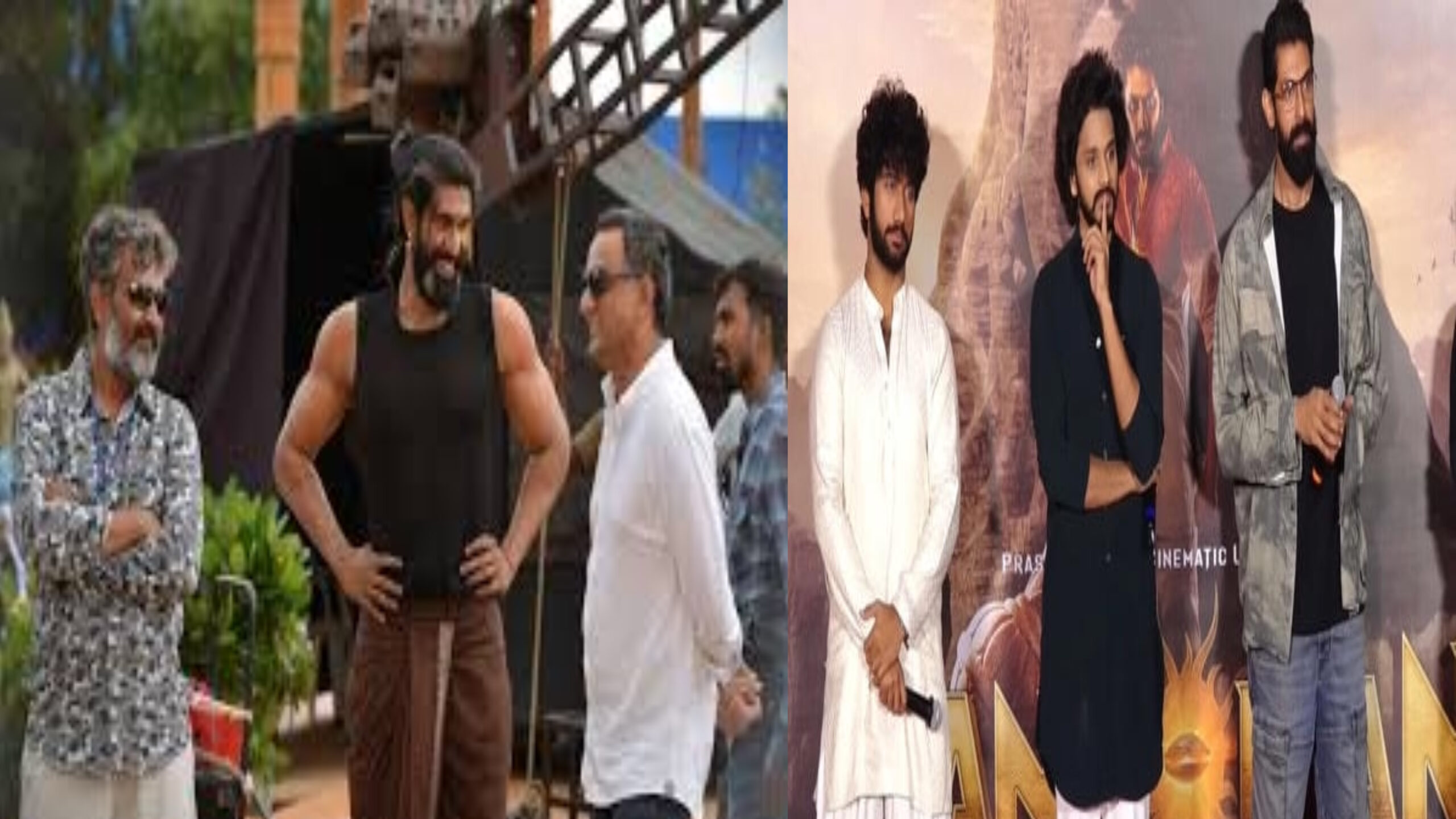Rana Daggubati, a prominent figure in the Telugu film industry, recently garnered attention for a gesture that resonated with his connection to Hindu culture. At an event in Mumbai for the superhero sci-fi film “HanuMan,” Rana’s act of removing his shoes before posing in front of the film’s poster became a symbolic display of reverence.
In a video shared on social media by a user with the handle @MrSinha_, Rana is seen arriving at the event in a black T-shirt, denim jacket, and pants. Before facing the paparazzi and striking a pose in front of the HanuMan poster, he takes off his shoes, placing them neatly to the side. The tweet expressed admiration for the Telugu film industry’s connection to Hindu culture, highlighting Rana’s respectful gesture.
Fans and followers quickly reacted to the video, emphasizing the significance of such cultural expressions. One comment underscored the importance of these actions, stating, “these things matter, in our house we don’t let shoes inside.”
A user on X pointed out their admiration for the unapologetic connection to cultural roots in South Indian movies, expressing appreciation for how elements like costumes, food, outdoors, customs, and music feel authentically Indian. This sentiment reflects a broader trend in the industry where filmmakers often incorporate traditional elements into their narratives, creating a unique blend of entertainment and cultural richness.
“HanuMan,” the film at the center of the event, had its theatrical release in January of the current year and enjoyed success at the box office. Directed by Prasanth Varma, the movie features Teja Sajja, Varalaxmi Sarathkumar, Amritha Aiyer, and Vinay Rai in lead roles. Teja Sajja shared insights into the film, describing it as a superhero sci-fi story where a young boy acquires superpowers through the grace of Lord Hanuman. The plot revolves around the boy’s journey as he uses these powers to fight for his people and religion. The film aims to entertain with superhero action sequences for children while seamlessly integrating Indian mythology.
Teja Sajja emphasized the efforts to blend Indian ‘itihaasaas’ (history) with the superhero concept, making it a captivating and culturally resonant cinematic experience. This approach aligns with the broader trend in the South Indian film industry, where filmmakers often explore the fusion of traditional narratives with contemporary genres.
Looking ahead, Rana Daggubati’s fans can anticipate his appearance alongside the legendary Rajinikanth in “Thalaivar 170.” Anirudh Ravichander is on board as the music director, and TJ Gnanavel will helm the directorial responsibilities.
In conclusion, Rana Daggubati’s act of removing his shoes as a mark of respect at the “HanuMan” event not only captured attention but also sparked discussions about the South Indian film industry’s unapologetic connection to cultural roots. This connection, reflected in both on-screen narratives and off-screen gestures, contributes to the industry’s unique identity and resonates with audiences appreciative of the blend of entertainment and tradition.

